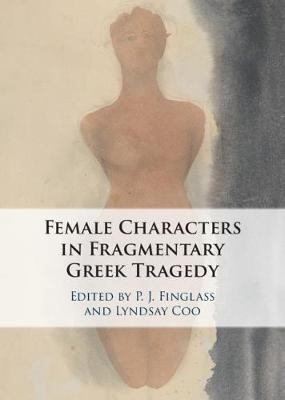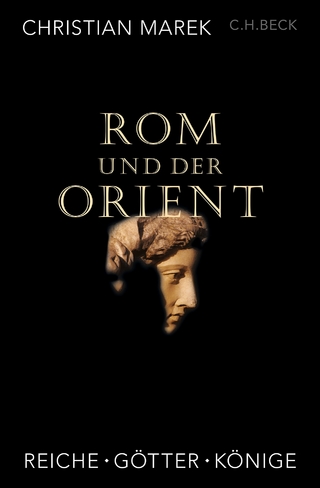
Female Characters in Fragmentary Greek Tragedy
Cambridge University Press (Verlag)
978-1-108-49514-1 (ISBN)
How were women represented in Greek tragedy? This question lies at the heart of much modern scholarship on ancient drama, yet it has typically been approached using evidence drawn only from the thirty-two tragedies that survive complete - neglecting tragic fragments, especially those recently discovered and often very substantial fragmentary papyri from plays that had been thought lost. Drawing on the latest research on both gender in tragedy and on tragic fragments, the essays in this volume examine this question from a fresh perspective, shedding light on important mythological characters such as Pasiphae, Hypsipyle, and Europa, on themes such as violence, sisterhood, vengeance, and sex, and on the methodology of a discipline which needs to take fragmentary evidence to heart in order to gain a fuller understanding of ancient tragedy. All Greek is translated to ensure wide accessibility.
P. J. Finglass is Henry Overton Wills Professor of Greek and Head of the Department of Classics and Ancient History at the University of Bristol. He has published Sophocles (2019) in the series Greece and Rome New Surveys in the Classics, as well as editions of Sophocles' Oedipus the King (2018), Ajax (2011), and Electra (2007), of Stesichorus (2014), and of Pindar's Pythian Eleven (2007) in the series Cambridge Classical Texts and Commentaries; edited The Cambridge Companion to Sappho (with Adrian Kelly, 2019) and Stesichorus in Context (Cambridge, 2015); and edits the journal Classical Quarterly. Lyndsay Coo is Lecturer in Ancient Greek Language and Literature at the University of Bristol. Her research focuses on lost and fragmentary ancient Greek tragedy and satyr play. She is writing a commentary on Sophocles' fragmentary Trojan plays, and is co-editor (with Anna Uhlig) of Aeschylus at Play: Studies in Aeschylean Satyr Drama (2019).
Preface; Acknowledgements; 1. Introduction Lyndsay Coo and P. J. Finglass; Part I. Themes: 2. Female violence towards women and girls in Greek tragedy Fiona McHardy; 3. Greek tragedy and the theatre of sisterhood Lyndsay Coo; 4. Women in love in the fragmentary plays of Sophocles Alan H. Sommerstein; 5. Heterosexual bonding in the fragments of Euripides Helene P. Foley; 6. Suffering in silence: victims of rape on the tragic stage P. J. Finglass; Part II. Plays: 7. Dancing on the plain of the sea: gender and theatrical space in Aeschylus' Achilles trilogy Anna Uhlig; 8. Europe revisited: an experiment in characterisation Niall W. Slater; 9. When mothers turn bad: the perversion of the maternal ideal in Sophocles' Eurypylus Robert Cowan; 10. The music one desires: Hypsipyle and Aristophanes' 'muse of Euripides' Caleb Simone; 11. Fragmented self and fragmented responsibility: Pasiphae in Euripides' Cretans Luigi Battezzato; 12. Female agency in Euripides' Hypsipyle James H. Kim On Chong-Gossard; 13. Making Medea Medea Matthew Wright; Bibliography; Index of subjects; Index of Greek; Index of passages discussed.
| Erscheinungsdatum | 01.05.2020 |
|---|---|
| Zusatzinfo | Worked examples or Exercises; 2 Line drawings, black and white |
| Verlagsort | Cambridge |
| Sprache | englisch |
| Maße | 175 x 250 mm |
| Gewicht | 650 g |
| Themenwelt | Geschichte ► Allgemeine Geschichte ► Altertum / Antike |
| Geisteswissenschaften ► Sprach- / Literaturwissenschaft ► Anglistik / Amerikanistik | |
| Geisteswissenschaften ► Sprach- / Literaturwissenschaft ► Literaturwissenschaft | |
| Sozialwissenschaften ► Soziologie ► Gender Studies | |
| ISBN-10 | 1-108-49514-1 / 1108495141 |
| ISBN-13 | 978-1-108-49514-1 / 9781108495141 |
| Zustand | Neuware |
| Haben Sie eine Frage zum Produkt? |
aus dem Bereich


